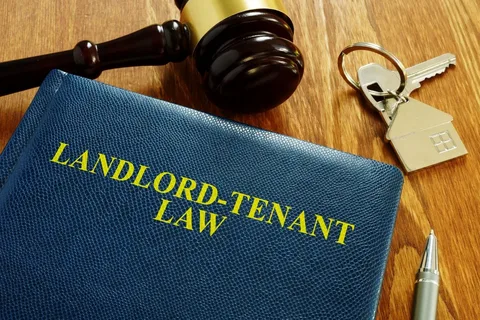When tenants apply to recover rent from landlords through a tenant repayment claim, they usually expect a fair outcome. However, in some cases, the tenant repayment claim is overturned due to legal or procedural issues that weaken the case.
In this article, we aim to explain what tenant repayment claims are, why some claims are overturned, and how tenants can avoid common mistakes. All guidance comes from trusted UK housing sources such as GOV.UK, Shelter UK, and Citizens Advice.
Understanding Tenant Repayment Claims
Tenant repayment claims allow renters to recover rent from landlords who breach housing laws. These situations often involve unlicensed properties or landlords failing to meet legal safety standards.
Tenants can apply for a Rent Repayment Order (RRO) through the First-tier Tribunal (Property Chamber). Some common scenarios include:
- Renting an unlicensed House in Multiple Occupation (HMO)
- Charging unlawful rent during an eviction ban
- Violating safety or housing regulations under the Housing Act
Tribunal members review the application, evaluate the evidence, and consider legal requirements before issuing a decision. For this reason, tenants must ensure their case is complete and clear.
What Does It Mean When a Claim Is Overturned?
If the tribunal rejects a claim, they overturn the request for repayment. In these situations, tenants may receive no rent refund or only a partial amount.
Several reasons lead to overturned decisions:
- Missing documentation such as rent records or tenancy agreements
- Landlords correcting issues before the hearing
- Late applications, which fall outside the 12-month limit
Since tribunals follow legal frameworks rather than opinions, tenants must submit timely and accurate claims.
Key Reasons Why Claims Get Overturned
Let’s explore the most common reasons claims fail:
1. Submitting Incomplete Evidence
When tenants miss key documents like rent receipts or emails with landlords, the tribunal might find the claim unsubstantiated.
2. Unclear Tenancy Agreements
Vague or informal rental agreements often create confusion about payment terms or responsibilities.
3. Misunderstanding Eligibility
Some tenants file claims based on landlord behaviour that doesn’t qualify as a legal offence. For example, minor disputes or poor communication might not meet the legal criteria for a repayment claim.
Tribunals base their decisions on facts, legal documents, and established law—not personal beliefs or opinions. A solid understanding of legal grounds strengthens any application.

Steps to Avoid Having a Claim Overturned
To improve your chances of success, follow these practical steps:
- Keep organized records: Store rent receipts, agreements, and landlord communications.
- Understand your legal position: Use GOV.UK and Shelter UK to learn what actions qualify for repayment.
- Meet legal deadlines: Apply within 12 months of the housing offence.
- Confirm licensing status: Check with your local council if the landlord needed a license.
- Get pre-claim advice: Consult housing advisors or local charities before you submit your application.
- Remember, tenants need to know our rights to ensure we file correctly and back our claims with valid evidence.
By following these steps, you reduce the chances of having your tenant repayment claim overturned.
What to Do After a Claim Is Rejected
If your claim doesn’t succeed, don’t panic. Instead, take the following steps:
- Read the tribunal’s decision carefully: Understand why the tribunal rejected the claim.
- Explore an appeal: If you believe a legal mistake occurred, request permission to appeal.
- Reach out to housing support: Groups like Shelter UK and Citizens Advice can help you understand your next options.
Every case is different. You may still take further action depending on the facts and new evidence.
Recommended Resources for Tenants
The following UK sources offer reliable guidance for tenants:
- GOV.UK – Rent Repayment Orders
Official advice on eligibility, documents, and application procedures. - Shelter UK
A charity offering free legal information and advice on housing rights. - Citizens Advice
Provides clear information and personal help for housing disputes. - Local council housing departments
Visit your council’s website to check property licensing records or ask questions.
Using these sources ensures you follow the correct steps and understand your rights.
User-Related FAQs
Q1: Can a tenant repayment claim be rejected?
Yes. Claims often fail due to missing documents, late applications, or legal compliance by the landlord.
Q2: What should I do if my tenant claim is overturned?
Review the tribunal’s explanation, explore an appeal, and contact housing advice organisations for support.
Q3: How long does a repayment claim take?
Most claims take several weeks to a few months, depending on evidence and tribunal scheduling.
Q4: Can I reapply after a rejection?
Reapplying is only possible if new legal grounds or strong new evidence becomes available.
Q5: Who provides free housing advice in the UK?
Shelter UK, Citizens Advice, and local councils offer free, trusted advice for tenants.
Conclusion
Tenant repayment claims offer renters a legal way to recover rent from landlords who break housing laws. However, success depends on strong preparation, clear documentation, and legal accuracy.
Tenants who submit late or incomplete claims risk having their tenant repayment claim overturned. To avoid that, use government and charity sources for reliable guidance.
